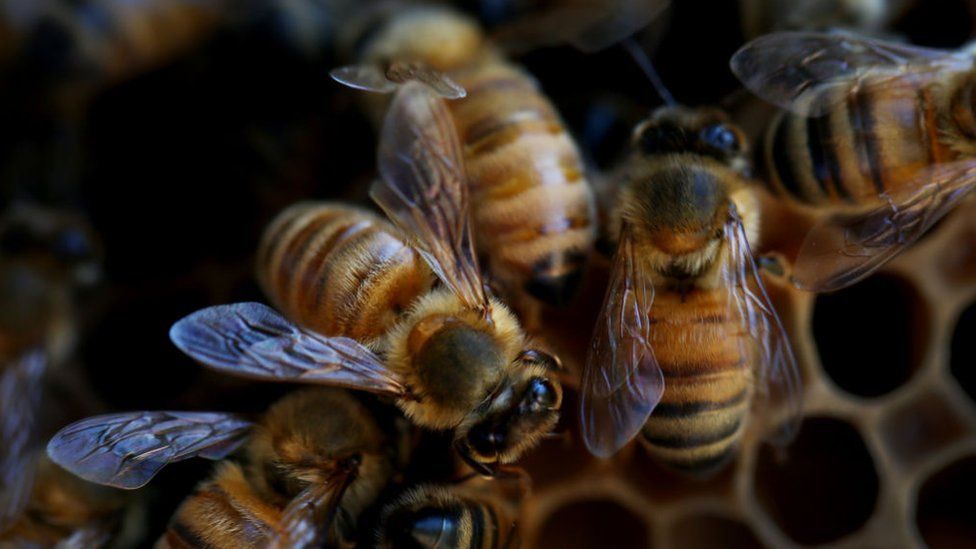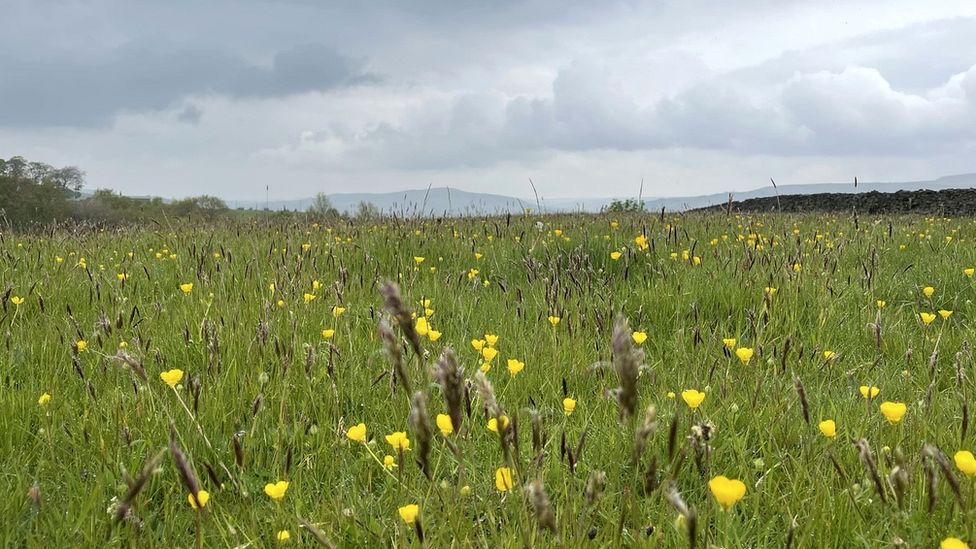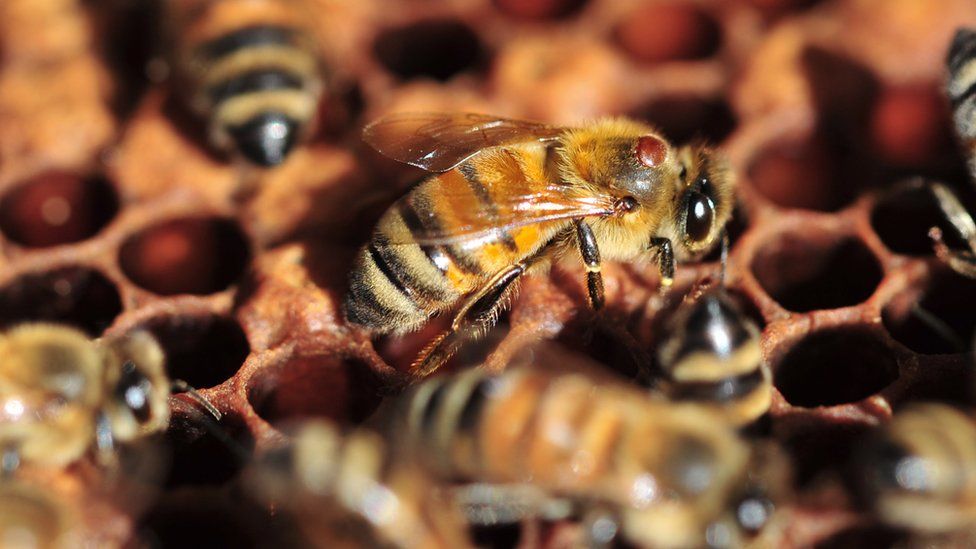Commercial formulas, which contain multiple chemicals, should require their own licences, researchers say.

image sourceGetty Images
Agricultural pesticides sold to farmers ready-mixed into “cocktails” can kill twice as many bees, according to an analysis of 90 studies.
Each measured the impact of environmental stresses such as pesticides and poor nutrition.
Researchers used that data to quantify how combinations of those stresses affected the pollinating insects.
And they say commercial formulas, which contain multiple chemicals, should now require their own licences.

image sourceVictoria Gill
“Exposure to multiple pesticides is the norm, not the exception,” Dr Harry Siviter, from the University of Texas at Austin, who led the study, told the BBC Radio 4’s Inside Science programme.
One 2016 study showed bee colonies containing larger numbers of pesticides were much more likely to die.
“If you have a honeybee colony exposed to one pesticide that kills 10% of the bees and another pesticide that kills another 10%, you would expect, if those effects were additive, for 20% of the bees to be killed,” Dr Siviter said.
But a “synergistic effect” could produce 30-40% mortality.
“And that’s exactly what we found when we looked at the interactions,” he said.
“So we really should consider the interaction between those chemicals” when licensing commercial formulas for use, Dr Siviter said.
“We don’t continue to monitor pesticides once they’re licensed for use, so we’re proposing post-licensing observations.
“If those pesticides [used in combination] harm bees, that harm is recorded.”
Another study published this week, however, suggests bees around the world are developing the ability to “clear out” a particularly damaging parasite – varroa, a mite that lives and feeds on honeybees and larvae.

image sourceUniversity of Hawaii
Bees already have complex organised hygienic behaviours, such as removing infected broods of larvae from the hive.
And now, data published in the Royal Society journal Proceedings B, from 40 years of research into colonies that survive infestations, without any chemical treatment, reveals they are evolving to “repurpose” that behaviour against varroa.
“We’re seeing this resistance increasing around the world,” Isobel Grindrod, from the University of Salford, said.
“And we’re also seeing an increase recently in bee-keepers not having to treat [the mites] with chemical treatments.”
“Pressure” from the mites was driving healthy bees to adapt, she said.
“Their adaptability is really important, and that’s why we need to maintain healthy bee colonies – to keep that adaptability – because there will be other, new diseases and pressures in the future.”
Hear more about bees’ battles with parasites and pesticides on BBC Inside Science on Radio 4 and BBC Sounds
Follow Victoria on Twitter.